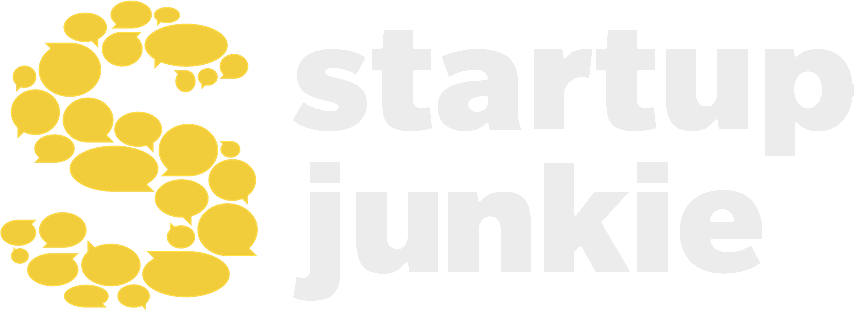요약
Startup Junkies Podcast의 또 다른 에피소드에 오신 것을 환영합니다!
이 에피소드에서 Dwain Hebda와 Kelli Reep은 Caleb Talley, Jeff Amerine, Matthew Ward와 함께 솔로프러너십과 프리랜서에 대해 논의합니다. Dwain은 Ya!Mule Wordsmiths의 창립자이고 Kelli는 Flywrite Communications를 창립했는데, 둘 다 홍보 및 저널리스트 기관입니다. 그들은 독자를 스토리로 끌어들이는 것, 자신의 사업을 키우는 것, 언제 풀타임으로 전환할지 결정하는 것, 그리고 훨씬 더 많은 것에 대해 논의합니다! 들어주셔서 감사합니다!
쇼노트
(1:15) Dwain Hebda와 Kelli Reep 소개
(8:34) 솔로프레너로서 자신의 배를 운전하다
(13:56) 독자와 소통하는 스토리 전달
(18:59) 단순화된 언어와 24시간 뉴스 사이클이 의사소통에 미치는 영향
(22:12) 회계 및 법적 책임의 아웃소싱으로 공정성을 유지하다
(29:35) 프리랜서로 전업하기로 결심하다
(36:19) 젊은 나를 위한 조언
(39:31) 마무리
연결
인용 부호
“당신이 판매할 수 없다면 - 이 경우, 당신 자신을 판매할 수 없다면 - 사람들이 당신의 문 밖에 줄을 서 있는 것은 당신이 세상에 문장을 쓸 수 있다고 선언했기 때문이 아닙니다. 그런 식으로는 안 됩니다.” (9:56)
“당신은 왜 당신이 그 달에 그들에게 비용이 될 것인지에 대한 설득력 있는 사례를 구축할 수 있어야 합니다. 당신은 이것이 어떻게 이익을 낼 것인지 보여줄 수 있어야 하고, 당신이 그들의 손에서 그것을 떼어내는 것이 실제로 어떻게 그들의 돈을 절약할 수 있는지 보여줘야 합니다.” (10:47)
“당신은 당신이 모르는 분야에 정통한 팀원 몇 명이 정말 필요합니다. 그리고 제 경우, 제가 고용한 최고의 인재, 제가 매년 가장 잘 쓰는 돈은 초기에 여러 가지 일을 안내해 줄 수 있는 경험 많은 회계사입니다.” (23:09)
“제가 처음 잡지 기사를 보고 스스로 뛰쳐나왔다면 정말 정말 빨리 배가 고팠을 것이고, 그것은 효과가 없었을 것입니다.” (32:15)
Dwain Hebda와 Kelli Reep이 함께하는 개인 기업가 정신의 신비를 풀다
Startup Junkie에서 우리는 야심 찬 프리랜서와 솔로프러너가 재정적으로 스스로를 스스로의 조건에 맞춰 지원하는 여정에서 수많은 장애물과 어려움에 직면한다는 것을 알고 있습니다. 어떤 유형의 사업으로 신고해야 할지 또는 언제 풀타임 프리랜서로 도약해야 할지 결정하든, 답은 거의 간단하지 않습니다.
Startup Junkies Podcast의 최근 에피소드에서 Dwain Hebda와 Kelli Reep은 Jeff, Caleb, Matthew와 함께 솔로프레너로서의 경험에 대해 논의했습니다. Dwain은 2009년에 Ya!Mule Wordsmiths를 설립했고, 나중에 2017년에 사업을 통합했습니다. 원래 조종사였던 Kelli는 에어컨이 있는 사무실로 옮겨가기 위해 성층권을 떠났습니다. 그녀는 솔로프레너십을 시작하고 2003년에 Flywrite Communications를 설립하기 전에 홍보 및 커뮤니케이션 분야에서 일했습니다.
프리랜서의 적절한 시기
대부분의 경우 프리랜서는 본업을 보완하는 부업으로 시작하지만, 일단 프로젝트를 쌓기 시작하면 일이 커리어와 비슷해집니다. 필연적으로 프리랜서는 다음과 같은 일반적인 질문에 직면하게 됩니다. 언제 본업을 그만두고 프리랜서 커리어를 시작해야 할까요?
드웨인은 이 질문에 대해 꽤 오랫동안 고민했습니다. 그는 2009년에 프리랜서로 시작했지만 2017년까지 풀타임 솔로프러너십으로 도약하지 않았습니다. 시기가 결코 적절하지 않다고 느껴질 수 있지만, 그는 재정적으로 전환을 준비할 것을 권장합니다.
“제가 처음 잡지 기사를 보고 스스로 뛰쳐나왔다면 정말 정말 빨리 배가 고팠을 것이고, 그것은 효과가 없었을 것입니다.” (32:15)
켈리는 솔로프러너십으로 가는 더 빠른 길을 택했지만, 프리랜서로 일하면서 겪는 재정적 어려움을 이해합니다. 그녀는 좋은 달이 있을 때마다 미리 청구서를 지불했고, 비수기에 비용을 지불하기 어려울 때 자신을 보호했습니다.
작가일 뿐만 아니라 영업사원이기도 하다
솔로프레너가 직면하는 또 다른 어려움은 자신의 상사가 되는 것입니다. 많은 사람에게는 환상이지만 현실에서는 도전적인 일입니다. 많은 작가가 자신의 영업에 자신감이 없어서 자신의 길을 선택하지만, 드웨인은 프리랜서라면 작가이자 영업사원이 되어야 한다고 말합니다.
“당신이 판매할 수 없다면 - 이 경우, 당신 자신을 판매할 수 없다면 - 사람들이 당신의 문 밖에 줄을 서 있는 것은 당신이 세상에 문장을 쓸 수 있다고 선언했기 때문이 아닙니다. 그런 식으로는 안 됩니다.” (9:56)
프리랜서로서 자신을 마케팅하고 판매하는 일에 어려움을 겪는다면 Dwain은 고객의 ROI에 집중하라고 권장합니다. 그들은 당신을 고용함으로써 어떤 혜택을 얻을까요?
“당신은 왜 당신이 그 달에 그들에게 비용이 될 것인지에 대한 설득력 있는 사례를 구축할 수 있어야 합니다. 당신은 이것이 어떻게 이익을 낼 것인지 보여줄 수 있어야 하고, 당신이 그들의 손에서 그것을 떼어내는 것이 실제로 어떻게 그들의 돈을 절약할 수 있는지 보여줘야 합니다.” (10:47)
전문가의 도움을 위한 아웃소싱
솔로프러너십은 당신이 혼자라는 것을 의미하지만, 당신은 자신의 약점을 평가하고 전문가에게 도움을 요청해야 합니다. 드웨인은 이러한 유형의 아웃소싱에 대한 가장 좋은 사례가 회계사를 고용한 것이라고 말합니다.
“당신은 당신이 모르는 분야에 정통한 팀원 몇 명이 정말 필요합니다. 그리고 제 경우, 제가 고용한 최고의 인재, 제가 매년 가장 잘 쓰는 돈은 초기에 여러 가지 일을 안내해 줄 수 있는 경험 많은 회계사입니다.” (23:09)
법률 또는 세무 용어에 대한 이해에 자신이 없다면 변호사와 회계사는 매우 도움이 됩니다. 비용이 많이 들 수 있지만, 후회할 투자는 거의 없습니다.
당신은 열망하는 솔로프레너입니까? 오늘 저희에게 연락하십시오!

